Deflategate, Chris Jones' Flop and the Morality of Sport
Call me a prude, but if I hear yet another story this week about how grown men handle their balls, I’m boycotting ESPN.
Unless you’ve been hiking the Pacific Crest Trail with Reese Witherspoon (a great flick, by the way, from Ms. Flick), your aural and visual senses likely have been inside zone blitzed for days by “Deflategate,” the latest SPORTS SCANDAL OF THE CENTURY, in which the New England Patriots have been accused of breaking NFL rules by under-inflating footballs for competitive advantage during last week’s AFC Championship game against the Indianapolis Colts.
The over-scrutinized, über-hyperbolic media coverage of the brouhaha (more cleverly-named “Ballghazi”) clearly demonstrates how in today’s angry Twitterverse, the sports news vacuum created by Super Bowl Bye Week is no longer the exclusive dominion of pro-NFL hype.
But even though the media’s reaction has been wildly disproportionate to the nature of the wrongdoing, it’s an important discussion to have. And while I’m a hard-core Pats fan (I went to school in Boston), should the NFL’s investigation prove the culpability of superstar quarterback Tom Brady or head coach Bill Belichick (who should already be on double-secret probation for 2007’s Spygate scandal), either man should be suspended immediately and punished severely.
For despite the extraordinary unlikelihood that the slight ball deflation altered the outcome of the game (New England crushed Indy 45-7), the incident strikes at the core value of competitive athletics. Due to sport’s unique and exceptional impact on society, we must insist on a zero tolerance policy on cheating.
There are many gradations of cheating in the sports world. First and worst is subverting team play in order to secure outside financial advantage, such as through point-shaving or game-throwing as part of an illegal sports gambling conspiracy. Close behind is trying to capture game-day advantage through means that demonstrably risk long-term physical harm, i.e. overuse of performance enhancing drugs. (While I argued here that Big Sport should reconsider its War on Steroids, I have no sympathy for the Lance Armstrongs of the world who know the rules and deviously violate them.) Then comes impropriety such as Deflategate — or baseball-scuffing or bat-corking –where the playing field is unleveled, and confidence in the sanctity of the game is undermined.
But in a different sense, perhaps the worst kind of sports cheating is the most subtle, by far the most common, and unfortunately, the most accepted as part of the nature of the game. I’m speaking of the little lies that players tell as they seek unfair advantage through undetected deception and understated artifice. It’s the outfielder who knows he trapped the ball but pretends to have caught it cleanly. It’s the defensive lineman who burrows through a pile to wrest the ball out of the hands out of the running back who legitimately held possession when the whistle blew. It’s the tennis player who calls the ball out when she’s the only one who knows that it nicked the baseline. It’s the catcher who “frames” the pitch by quickly moving his glove into the strike zone to fool the umpire.
And then — by far the most pervasive subtle cheating today — it’s the flop: the World Cup midfielder, or NFL wide receiver, or NHL defenseman who fakes contact with an opponent to delude the referee into calling a penalty on the other team.
The Big Blue Nation witnessed one of the most ridiculous exhibits of this misconduct in Kentucky’s December matchup with intrastate archival Louisville. As Cats big Dakari Johnson hauled down a rebound, Cardinal guard Chris Jones pretended that he was struck by Johnson’s elbow; and in what my colleague Drew Franklin termed the “worst acting performance since Eddie Murphy in The Adventures of Pluto Nash,” he continued to feign an imaginary jaw injury minutes after Dakari’s swing and whiff. (Watch the replay or check out this Play-doh recreation.)
Of course, sports fans, there was a happy ending. The refs didn’t buy what Jones was selling; the national press lambasted him; and much to his credit, coach Rick Pitino benched the Card guard for most of the following game. Even Jones admitted later that the whole incident was “embarrassing.”
But too often, crime pays. Miami star Dwayne Wade’s infamous flop in Game 2 of last year’s NBA finals put All-Star San Antonio Spur Manu Ginobili into early foul trouble, likely influencing the outcome of a game that Wade’s Heat won by only two points. And just a few weeks ago, a Tyson Chandler flop pretty much clinched the game for his Dallas Mavericks, fouling out the Sacramento Kings’ best player, former Cat Demarcus “Boogie” Cousins.
But it’s less the outcome than the behavior itself that’s most disturbing. To be clear, game-throwing, PED-using and even equipment-altering are much more morally offensive than subtle play-acting. But when these transparently egregious infractions are identified, the strong penalties that are usually imposed send a powerful public message.
By contrast, when a player gets away with a particular crafty flop or an ingenious deception — especially if he is on our team — he sometimes is celebrated. Bobby Thompson may have hit “the shot heard around the world,” to win the 1951 National League playoff with the Brooklyn Dodgers, but New York Giants were stealing the catcher’s signs to his pitcher, a practice still defended to this day by some fans and surviving players.
And that’s the pernicious problem. Over the past few months, I’ve used this column to extol the virtue and meaning of sport, particularly my favorite, college hoops. I’ve discussed how Anthony Davis models selflessness; how Richie Farmer’s foibles offer meaningful lessons on hubris, entitlement and forgiveness; and most of all, how Kentucky basketball serves as the most powerful force in our Commonwealth for community and connection.
So when players cheat and then triumph, sport is sending an equally compelling, but this time a sinister and destructive message: that dishonesty is permissible on occasion, that deception is acceptable societal behavior. In a culture where winning is everything, the lesson learned — particularly by our impressionable youth — is that corner-cutting, spin, and clever chicanery are the necessary arsenal to achieve the American Dream. The slope from flopping to test cheating to tax dodging to political lying to insider trading to criminal defrauding is quite slippery indeed.
Sports have a commanding influence on our society; they must model integrity, fairness, rectitude, and character. That’s why the NFL must crack down strongly on the Ballghazi perpetrators. And that’s why college refs should start assessing technical fouls — and in the most egregious cases, suspensions — for any proven instances of malicious flopping.
As we watch grownups play kids’ games, we should always remember to see them through our children’s eyes. It’s critical that the lessons young people learn from the sport model the kind of society we’d like them to inherit.

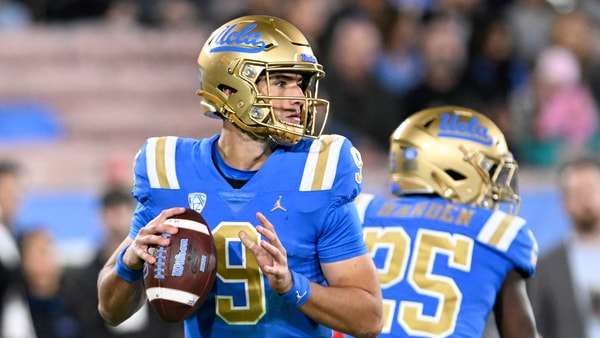
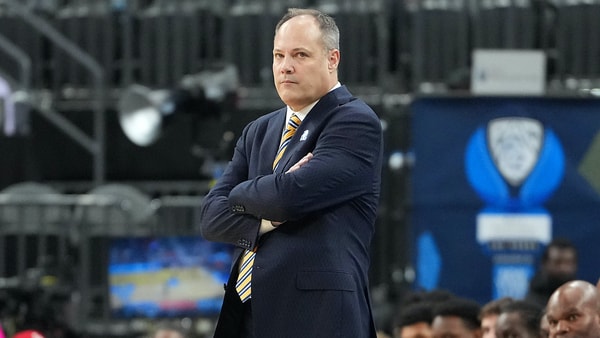
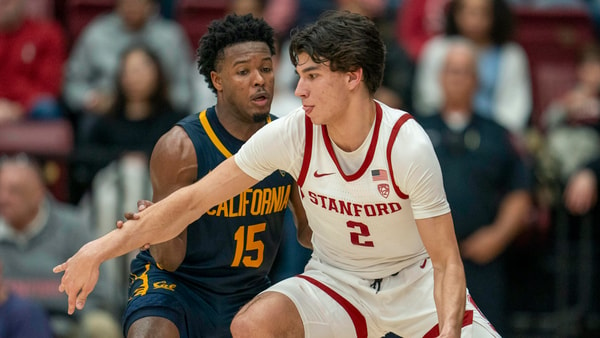
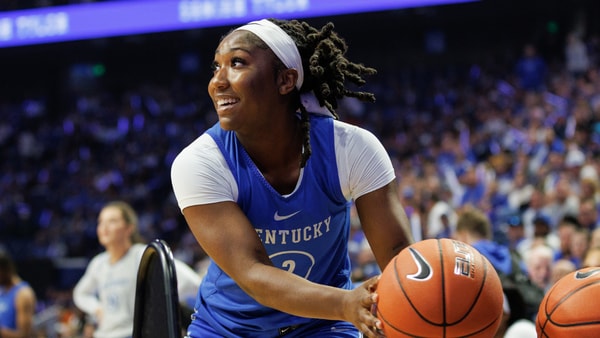
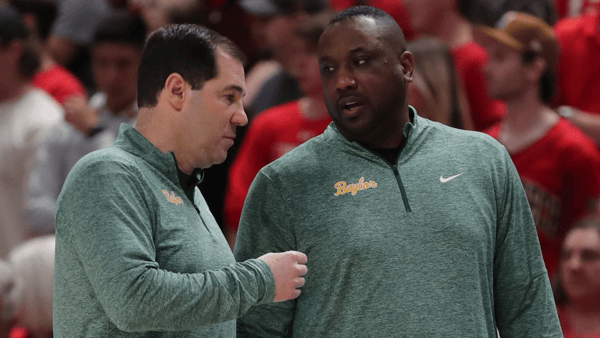
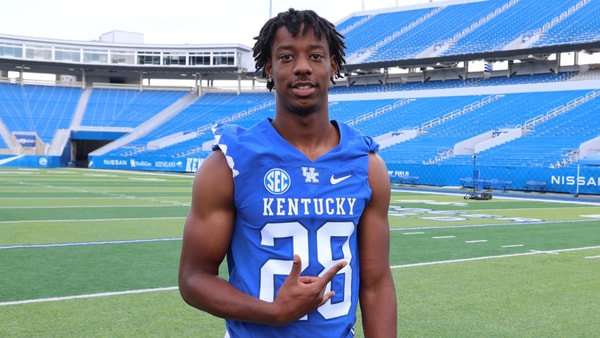
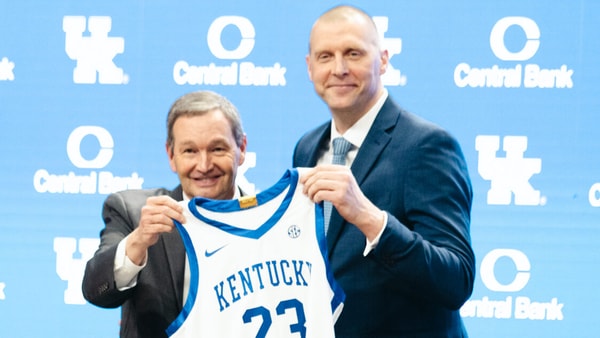
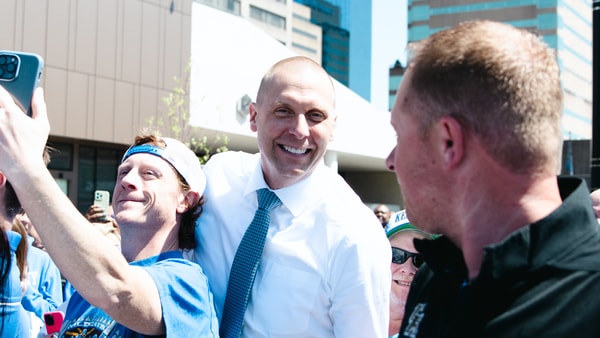
Discuss This Article
Comments have moved.
Join the conversation and talk about this article and all things Kentucky Sports in the new KSR Message Board.
KSBoard